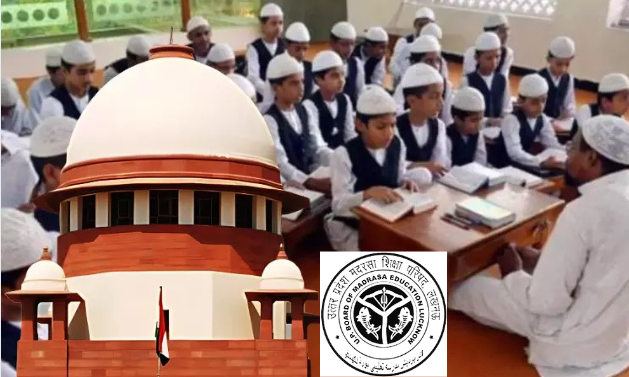– Akhilesh Tripathi/Lucknow
Uncertainty is looming over the future of 37,000 madrasa students in Uttar Pradesh. On November 5, the Supreme Court delivered a historic verdict, upholding the constitutional validity of Uttar Pradesh Madrasa Education Board Act, 2004. However, alongside this decision, the Supreme Court declared Kamil and Fazil degrees awarded by madrasas in Uttar Pradesh as invalid.
The Supreme Court stated that madrasas recognised by the Madrasa Board cannot grant higher education degrees like Kamil and Fazil, as it is unconstitutional and goes against the UGC Act. With this decision, the Madrasa Education Board law in Uttar Pradesh has been deemed valid, meaning madrasas will continue to operate and offer education. However, Kamil and Fazil degrees can no longer be awarded by UP Madrasa Board. As a result, the studies and degrees of Kamil and Fazil under the UP Madrasa Board have effectively been nullified.
This decision has cast a shadow of uncertainty over the future of students pursuing Kamil and Fazil studies in madrasas across the state, leaving their educational prospects in jeopardy.
Currently, around 16,460 madrasas in Uttar Pradesh are recognised by Madrasa Education Board. Out of these, 560 madrasas receive financial assistance from the state government. These madrasas offer education equivalent to various levels: Munshi-Maulvi (equivalent to high school), Alim (equivalent to intermediate), Kamil (equivalent to a bachelor’s degree), and Fazil (equivalent to a master’s degree). However, Kamil and Fazil degrees do not have recognition from the UGC. Despite this, these two degrees are considered valid for the appointment of teachers in madrasas recognised by UP Madrasa Board.
Currently, about 28,000 students are enrolled in the first, second, and third years of Kamil courses, while approximately 9,000 students are pursuing education in the first and second years of Fazil courses. However, due to the SC decision, the future of these Kamil and Fazil students studying in madrasas has become uncertain.
These students are not at fault. They are simply pursuing higher education through Kamil and Fazil courses with hopes of securing jobs and employment. They may not even be aware that UP Madrasa Board does not have the authority to grant Kamil and Fazil degrees. Had they known that the madrasa board’s authority to offer these degrees was not recognised, they likely would not have opted to pursue these studies.
Many of these students come from remote areas of the country to seek higher education in madrasas. These innocent students bear no responsibility for this situation. Given the current crisis, it is essential for UP Madrasa Board and the state government to step forward and find a solution to this looming issue. Addressing this problem, the future of these blameless students can be safeguarded, allowing them to continue their higher education. The UP government should consider the humanitarian aspect of the situation, and take action to protect the educational prospects of these students.
Regarding this matter, J. Reeha, Director of the UP Minority Welfare Department, stated, “A proposal related to the Supreme Court’s decision has been sent to the government. Additionally, advice will be sought from the legal department. At this moment, we cannot say anything definitive.”
On the other hand, R.P. Singh, Registrar of UP Madrasa Board, commented, “We are awaiting instructions from the government. We can only provide further information once we receive the government’s directives.”




